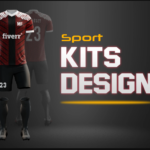Toddlers, typically aged between one and three years, are at a fascinating stage of development. They are rapidly learning and exploring the world around them, and the right toys can play a crucial role in this process, helping toddlers build essential skills while having fun. In this blog, we’ll explore the world of toys for toddlers in more depth, focusing on how these playthings can contribute to early development and learning.
The Importance of Toys
Toys are not just entertaining distractions for toddlers; they are tools that support their physical, cognitive, and emotional growth. It’s crucial to understand the importance of toys in a toddler’s life:
1. Development of Motor Skills
Toddlers are in the process of refining their fine and gross motor skills. They’re developing control over their muscles and movements. Toys like building blocks, puzzles, and ride-on toys provide opportunities for them to practice coordination, balance, and dexterity. For example, stacking blocks helps them refine their hand-eye coordination and improve fine motor skills.
2. Cognitive Development
Toddlers’ brains are like sponges, soaking up knowledge and making sense of the world around them. Toys can stimulate their cognitive development by encouraging problem-solving, exploration, and creativity. These toys offer age-appropriate challenges that help toddlers learn about cause and effect, shapes, colors, and spatial relationships. When a toddler plays with a shape-sorting toy, they’re not just pushing shapes into holes; they’re learning about spatial concepts and the characteristics of different shapes.
3. Language Development
Toddlers are at an age when they are rapidly expanding their vocabulary and communication skills. Toys can be valuable tools for language development. Interactive toys that encourage toddlers to speak, listen, and follow instructions can boost their vocabulary and communication skills. For instance, toys that repeat words or phrases can help toddlers learn new words and understand the meaning of language.
4. Emotional Expression and Social Skills
Toddlers are developing a sense of self and learning to interact with others. They may not yet have the words to express their emotions fully, but toys can help them with emotional expression and understanding. Toys such as dolls and action figures can aid in the development of empathy, imagination, and social skills as they engage in pretend play and storytelling. Playing with these toys allows toddlers to explore different roles and relationships, which is crucial for their emotional development.
5. Creativity and Imagination
Toddlers have a vibrant imagination, and toys that encourage open-ended play, such as art supplies, building sets, and dress-up clothes, foster creativity and imaginative thinking. These activities encourage toddlers to create their stories and explore the world from different perspectives. For example, building with blocks can lead to the creation of a magnificent castle, an intricate road network, or a spaceship to explore the cosmos. Through open-ended play, toddlers are not only being creative but also learning about problem-solving, spatial relationships, and physics as they experiment with balance and structure.
Types of Toys
When selecting toys for toddlers, it’s essential to consider their age, interests, and developmental stage. Here are some popular types of toys, with more detailed explanations:
1. Building Blocks
Colorful building blocks are a timeless favorite among toddlers. These versatile toys help toddlers develop fine motor skills, spatial awareness, and creativity. They can build, stack, and experiment with different shapes and sizes, enhancing both their physical and cognitive development. Playing with building blocks allows toddlers to explore concepts like balance, gravity, and symmetry.
2. Educational Puzzles
Simple puzzles with large, easy-to-grasp pieces introduce toddlers to problem-solving and spatial reasoning. Puzzle play can also enhance their hand-eye coordination. Toddlers enjoy the challenge of fitting pieces together, and they develop a sense of achievement as they complete a puzzle. Puzzles come in various forms, from basic shapes to familiar objects and scenes, making them engaging and educational.
3. Art Supplies
Crayons, markers, and washable paints provide opportunities for creative expression. These activities allow toddlers to explore colors, shapes, and patterns while developing their artistic abilities. Art supplies can be both relaxing and stimulating for toddlers. They may start with simple scribbles and eventually progress to drawing recognizable shapes and figures. Art activities also promote hand-eye coordination and fine motor skills as they learn to control their movements to create the images they envision.
4. Soft and Plush Toys
Soft toys, such as stuffed animals and dolls, offer comfort and emotional support to toddlers. They can become companions and playmates that encourage empathy and imaginative play. Toddlers often form strong attachments to their plush toys, providing them with a sense of security and comfort. These toys are excellent for nurturing emotional development as children learn to care for and interact with their plush friends.
5. Ride-On Toys
Ride-on toys, like tricycles or small scooters, help toddlers improve their balance, coordination, and gross motor skills. These toys also promote physical activity and outdoor play. Riding a tricycle or scooter is an exciting way for toddlers to engage in physical activity, build their muscles, and develop a sense of balance and control. These toys are a stepping stone to more independent play and exploration of the outdoors.
6. Musical Instruments
Musical instruments like xylophones, drums, and shakers introduce toddlers to the world of sound and rhythm. These toys enhance auditory and sensory development while encouraging creative expression. Musical instruments are engaging for toddlers as they experiment with different sounds and rhythms. These activities promote listening skills, hand-eye coordination, and an appreciation for music.
7. Interactive and Educational Toys
Many interactive toys are designed with educational features, such as alphabet or number recognition, colors, and shapes. These toys make learning fun and engaging for toddlers. Interactive toys often have buttons, lights, and sounds that captivate a toddler’s attention and stimulate their curiosity. They provide opportunities for learning and discovery while keeping toddlers entertained and engaged.
Choosing the Right Toys
Selecting the right toys for toddlers involves a thoughtful and informed approach. Here are some additional considerations when choosing toys for this age group:
1. Age-Appropriate
Toddlers develop at different rates, and their needs and abilities change as they grow. When choosing toys, consider your child’s specific age and developmental stage. Ensure that the toys are suitable for their current abilities and interests. Age-appropriate toys are designed with safety and developmental considerations in mind.
2. Safety
Safety is paramount when selecting toys. Ensure that the toys are made from non-toxic materials and do not have small parts that can pose a choking hazard. Check for age-appropriate safety certifications and follow safety guidelines provided by manufacturers.
3. Variety
Offer a variety of toys to stimulate different aspects of development. Include toys that promote physical activity, creativity, problem-solving, and language development. Variety keeps playtime exciting and provides opportunities for toddlers to explore their interests and talents.
4. Quality
Invest in well-crafted, durable toys that can withstand active play. High-quality toys are more likely to last and provide long-term value. While it’s tempting to opt for cheaper alternatives, investing in well-made toys ensures they can be passed down to younger siblings or other children, contributing to a more sustainable approach to play.
5. Encourage Open-Ended Play
Choose toys that allow for open-ended play, where toddlers can use their imagination and creativity to explore and learn. Open-ended toys foster independent thinking and problem-solving skills, as there is no predetermined way to play with them. Building blocks, art supplies, and dress-up clothes are examples of toys that encourage open-ended play.
Conclusion
Toys for toddlers are not mere playthings; they are essential tools for early development and learning. By providing age-appropriate, safe, and engaging toys, parents and caregivers can support toddlers’ physical, cognitive, emotional, and social growth. The right toys help toddlers develop essential skills while sparking their curiosity, creativity, and love for learning. Whether it’s building blocks, puzzles, art supplies, or interactive toys, the world of toys is a treasure trove of opportunities for exploration and growth, setting the stage for a bright and curious future.



